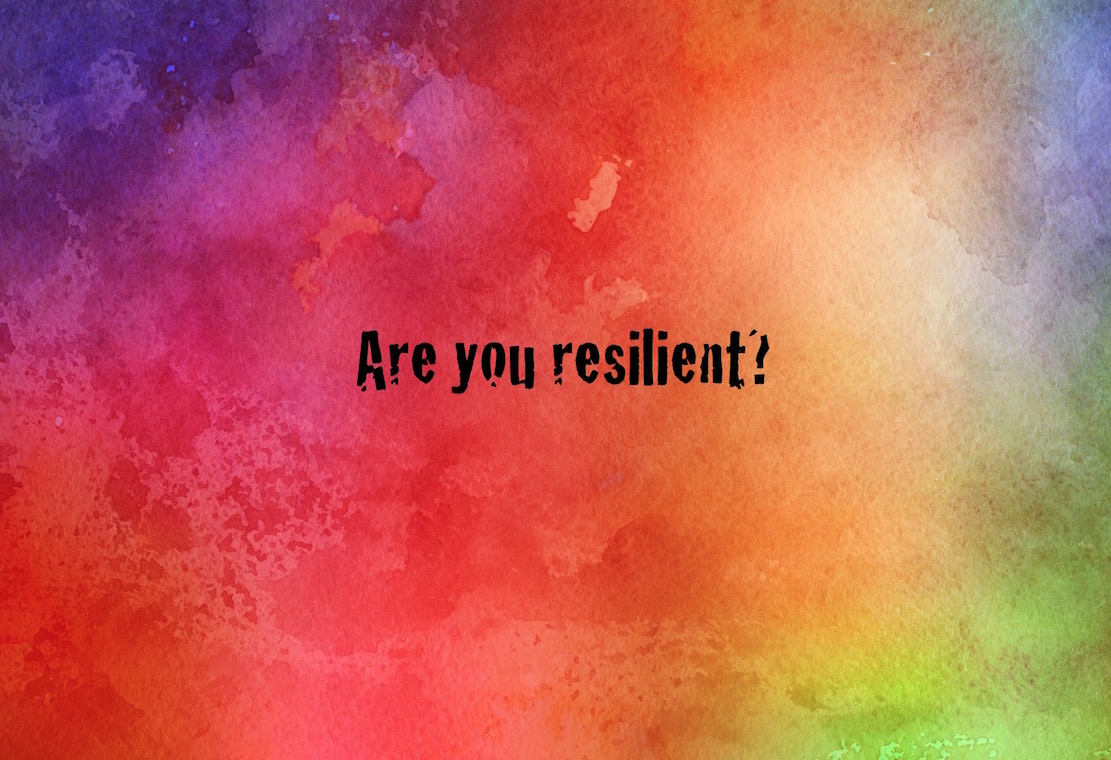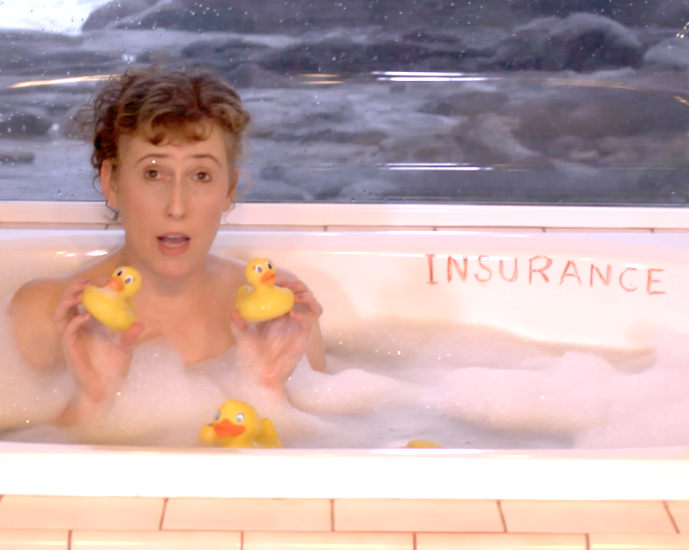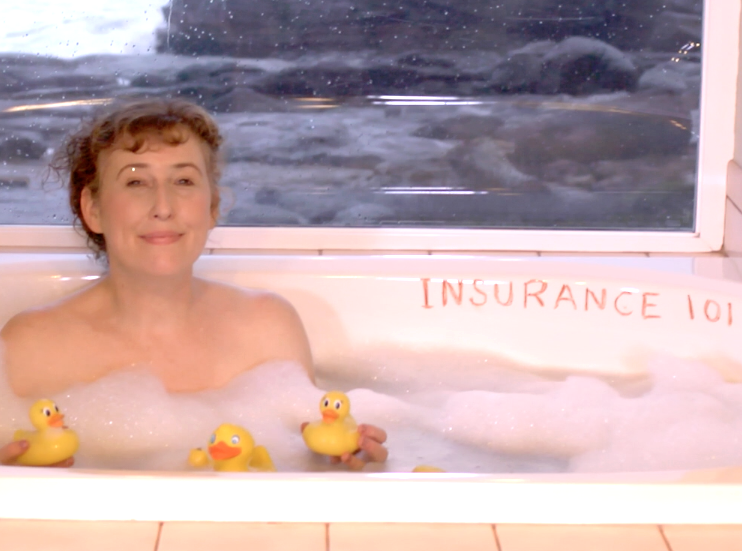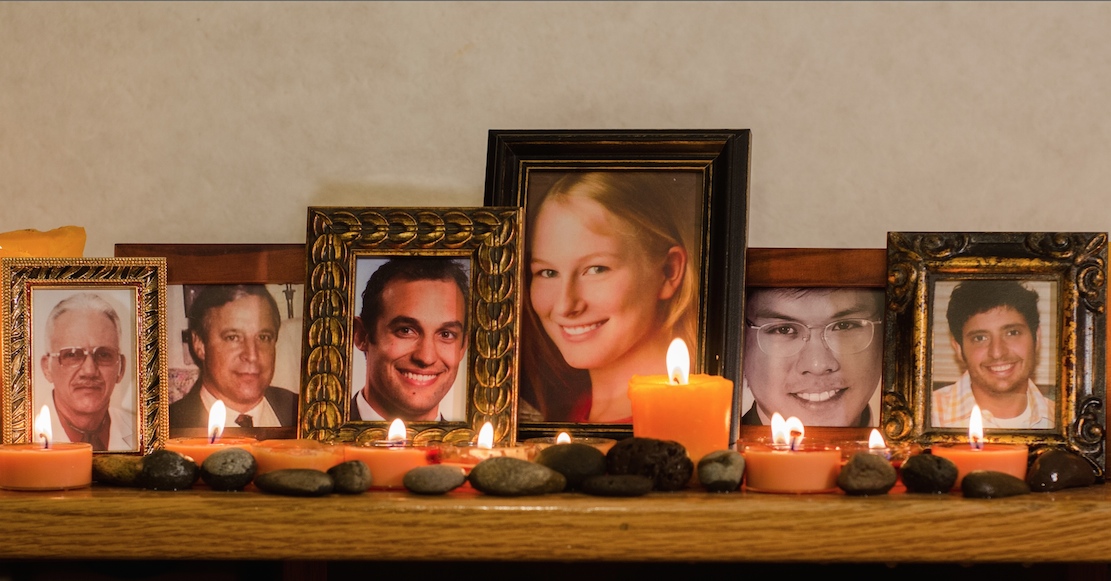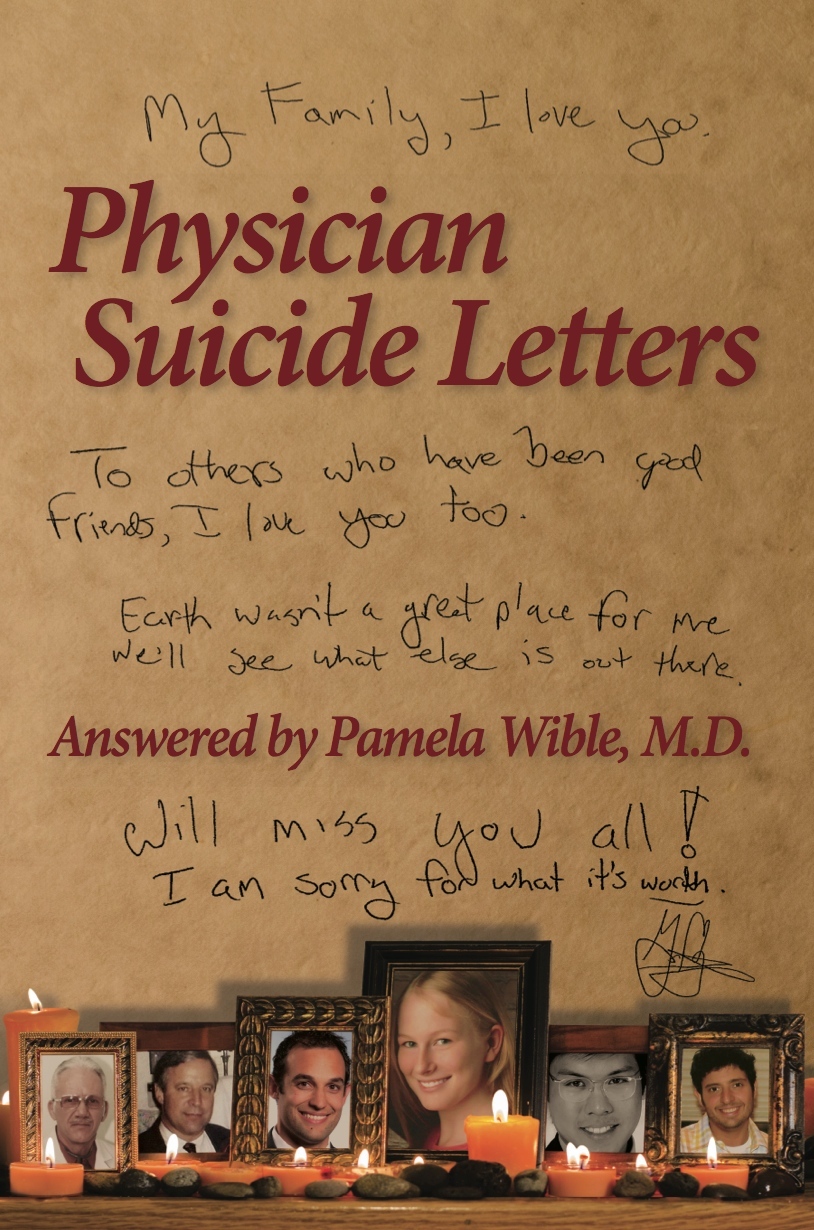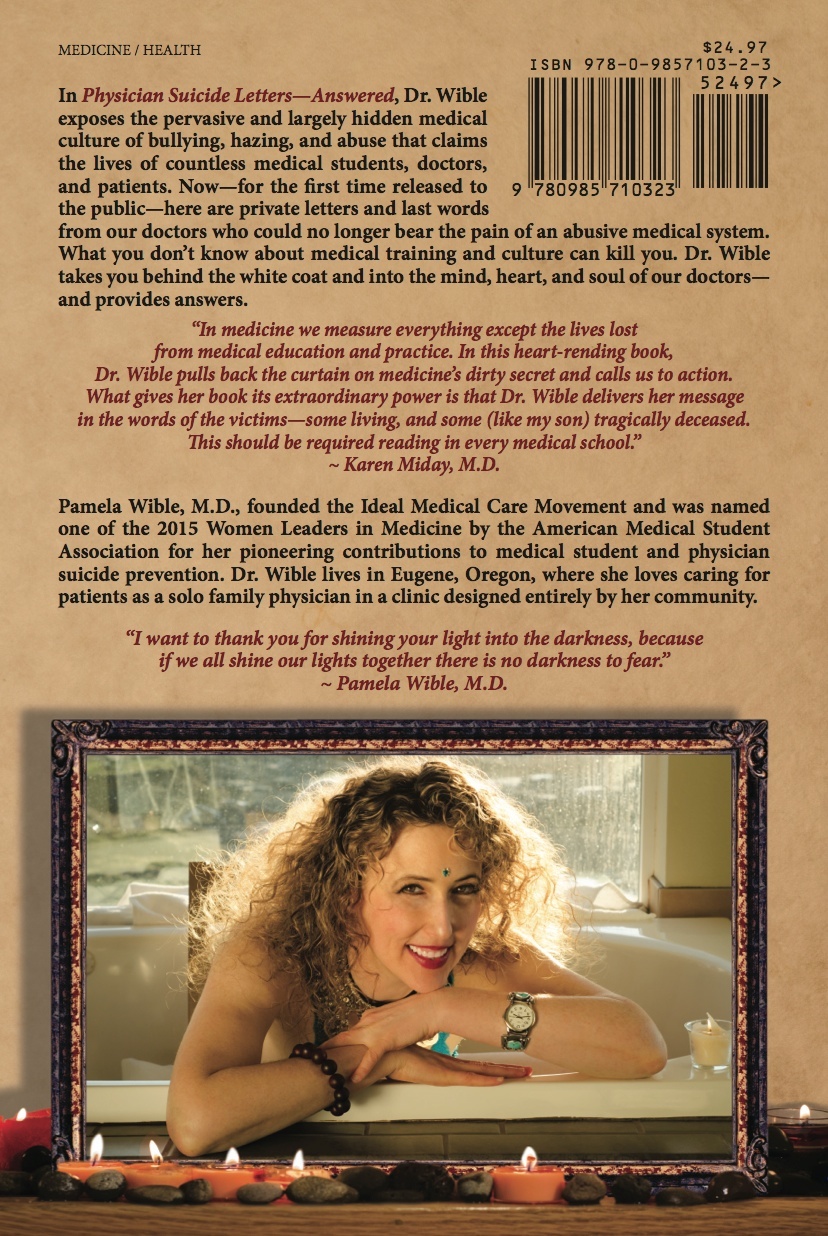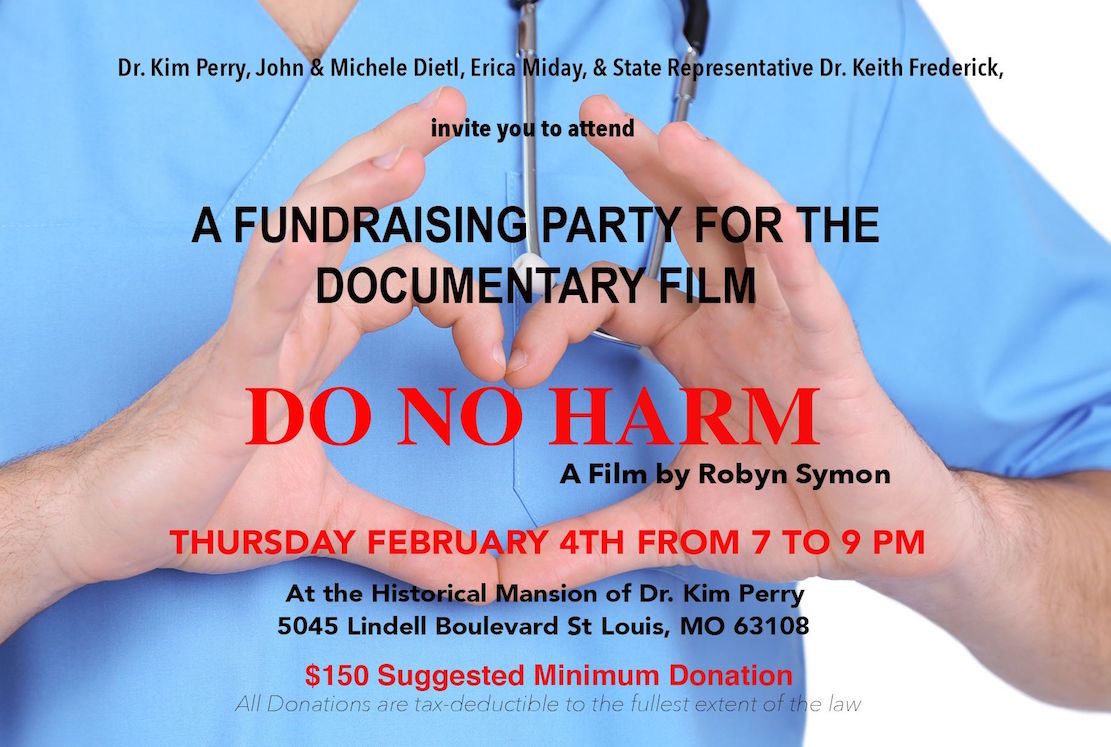
On February 4, 2016, I delivered this speech to 250 citizens of Missouri at a fundraiser for a documentary on physician suicide.
I’m here to speak for the victims—medical students and physicians who’ve died by suicide and others on the edge now who have written to me. I simply ask that you open your heart to their words . . .
Dear Pamela ~ I definitely graduated from med school with PTSD. It has changed me forever. I will never be the same again. We had two suicides and one murder, skull crushed with a bat, and one serving life in prison for murdering a classmate during a delusional episode after not sleeping for a month. Please change medical education. We were so beaten down. It takes a lot for me to cry, but I cried all the time along with everyone else. But we hid it from each other, of course. ~ Maria
Dear Dr. Wible ~ I’m not sure you read your [Facebook] messages but feel compelled to thank you. I was finishing term two of med school and had a bottle of Xanax in my hand. I was ready, as so many of us are. I took three then three more and came across your talk, “How to graduate medical school without killing yourself ” which I believe may have saved my life and a couple of close friends who are also suffering. [He was in the process of a suicide attempt and my lecture popped up on his Facebook feed] I’m near the top of my class and praying for death to escape the trap I’m locked into. I was in true delirium from lack of sleep and fear of failure. Studying in my sleep and waking up every hour in panic. Med school is doable but why must it be taught in this format? I read your stories and I’m just in shock how many others feel like I do or I feel like they do. Please keep sharing. You are saving lives, friend. ~ Chris
For each person I help, there are thousands more on the edge.
Each year more than one million Americans lose their doctors to suicide.
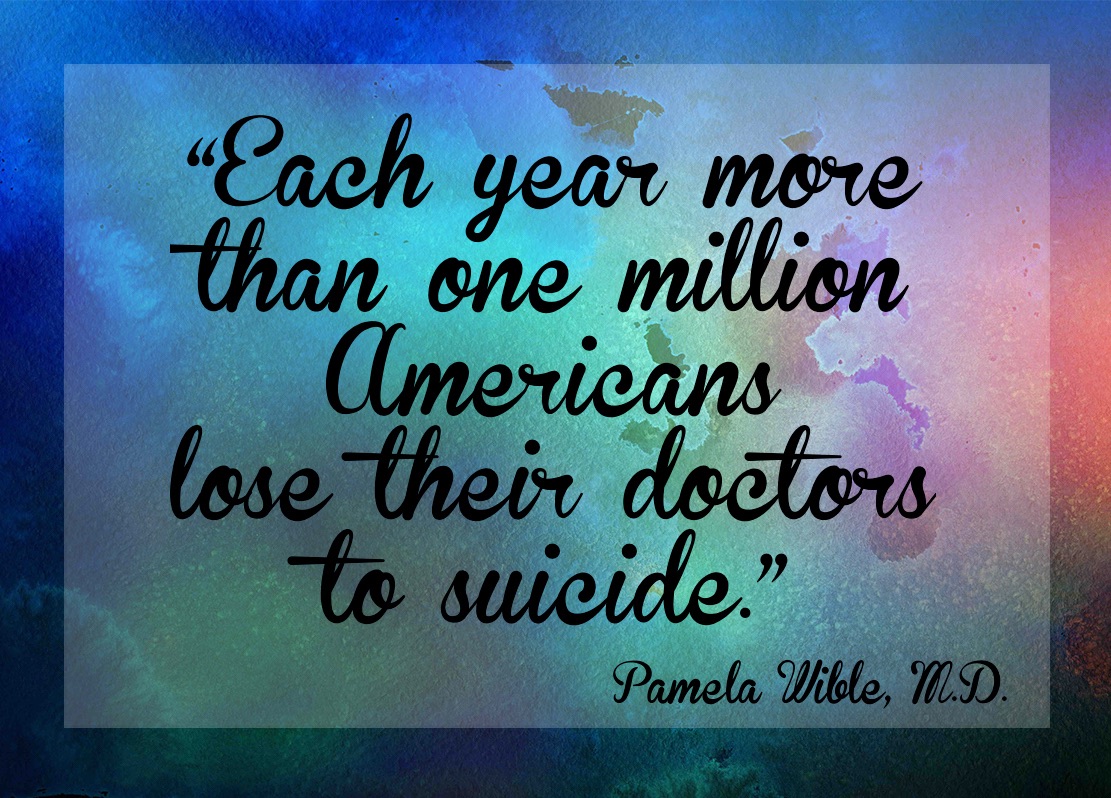
Across the country, our doctors are jumping from hospital rooftops, overdosing in call rooms, found hanging in hospital chapels.
It’s medicine’s dirty secret. And it’s covered up by our hospitals, clinics, and medical schools. No medical school wants to be known as the suicide school. No hospital wants to be #1 for interns jumping from rooftops. No one wants to become a doctor—to kill themselves.
So why? What the hell is going on? And why is this such a secret? And why am I piecing this together between patients? I’m a solo family doc, yet somehow I’ve become an investigative reporter, a specialist in physician suicide. Why? Mostly because I can’t stop asking why. Why both doctors I dated in med school died by suicide. Why 8 doctors killed themselves—just in my sweet little town. So I keep talking and writing—and listening for the truth. And because I’m listening with my heart and soul 24/7, my cell phone has turned into a suicide hotline and I’ve received hundreds of letters from suicidal physicians.
Like this letter I just received from an intern: “While in the ICU I joked about jumping from the helipad and a nurse said ‘well it’s about time, we’re due for another one. It’s been a few years’ I worked 118 hours last week and was told I’m not committed enough. And being the only woman if I show any feeling or compassion or pain I’m ‘over emotional’ and when families hug me I’m told I should have been a social worker.”
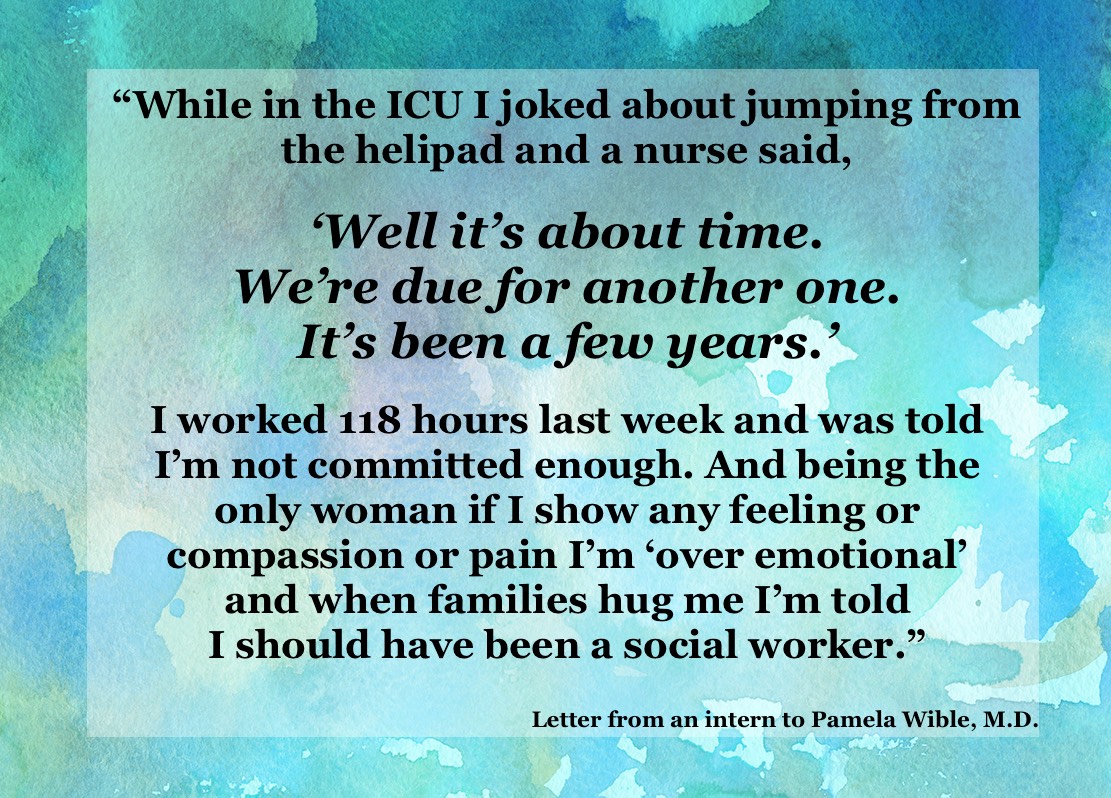
Suicide is never a joke. Students and doctors are crying out for help. And they are met with callousness—and even encouraged to kill themselves. These letters that I’ve published in my newest book, Physician Suicide Letters—Answered, reveal the pervasive and largely hidden medical culture of bullying, hazing, and abuse that claims the lives of countless medical students, doctors, and patients. Students who ask for help are often labeled (in evaluations and transcripts) as unprofessional, not a team player, inefficient, too sensitive, lazy, angry, idealistic. They are even told they have “inappropriate feelings.” Victim blaming and shaming creates desperate people and desperate people take desperate actions to end their pain.
So how does the system respond?
1) Doctors who dissent to working conditions are diagnosed as DISRUPTIVE (and are mandated to attend disruptive doctor classes). Well behaved doctors rarely make history. We need disruptive doctors.
2) Doctors who complain about 100+-hour work weeks are told they lack RESILIENCE (and are sent to resiliency training). We don’t need more resilience. We need more resistance to abuse.
3) And the catch-all diagnosis of the day—BURNOUT. Doctors aren’t burned out, they’ve been snuffed out.
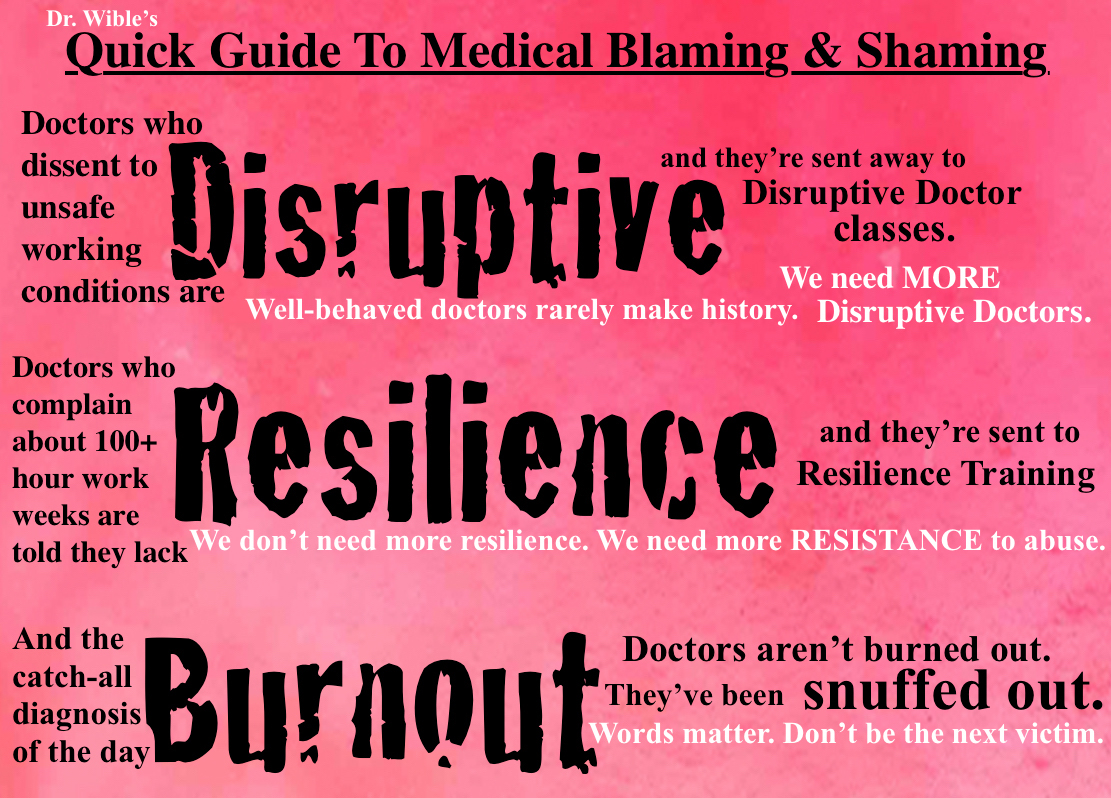
Like Dr. Greg Miday who sought help from the Missouri Physicians Health Program—an agency with no physician oversight that controlled his medical license. They told him NOT to follow his psychiatrist’s safety plan. Hours later he died after slicing the arteries in his wrists and ankles.
Like Dr. Kevin Dietl who couldn’t get the help he needed for occupationally induced depression. He killed himself just weeks before his graduation from a Missouri medical school. Michele and John Dietl were to be celebrating their son’s graduation, instead they attended his funeral.
Like the 3 medical students who died last week—a triple suicide. Three female medical students in India threw themselves into a well. In their suicide note they cite excessive fees, bullying, and abuse. This is a global phenomenon. And suicide pacts happen in the US too. Two female family medicine residents in Oklahoma died by overdose together (with a gun as backup).
Thankfully, MISSOURI is shining a spotlight on this crisis and blazing a trail for us all. Yes, the Show Me State is showing us what can be done.
Why Missouri ? 1) State Rep Dr. Keith Frederick is spearheading legislation to help depressed and suicidal medical students and 2) Dr. Stuart Slavin at St. Louis University is humanizing the medical school curriculum with excellent results for student mental health and 3) Families like the Dietls and Midays are speaking up about their physician children who have died in St. Louis for lack of the care they needed.
How can you support our efforts?
1) Read Physician Suicide Letters—Answered to grasp the current conditions of medical training. We can’t solve a problem nobody knows exists. **All book proceeds will be used to humanize our medical education system and help save the lives of suicidal medical students and doctors.**
2) Support the documentary Do No Harm so that the world can see the truth behind the white coat.
3) Keep talking and shining your light on this topic. “When we all shine our lights together, there is no darkness to fear.”
Pamela Wible, M.D. is the founder of the Ideal Medical Care Movement and an activist in medical student and physician suicide prevention. She has been named one of the 2015 Women Leader in Medicine for her pioneering contributions to medicine.
